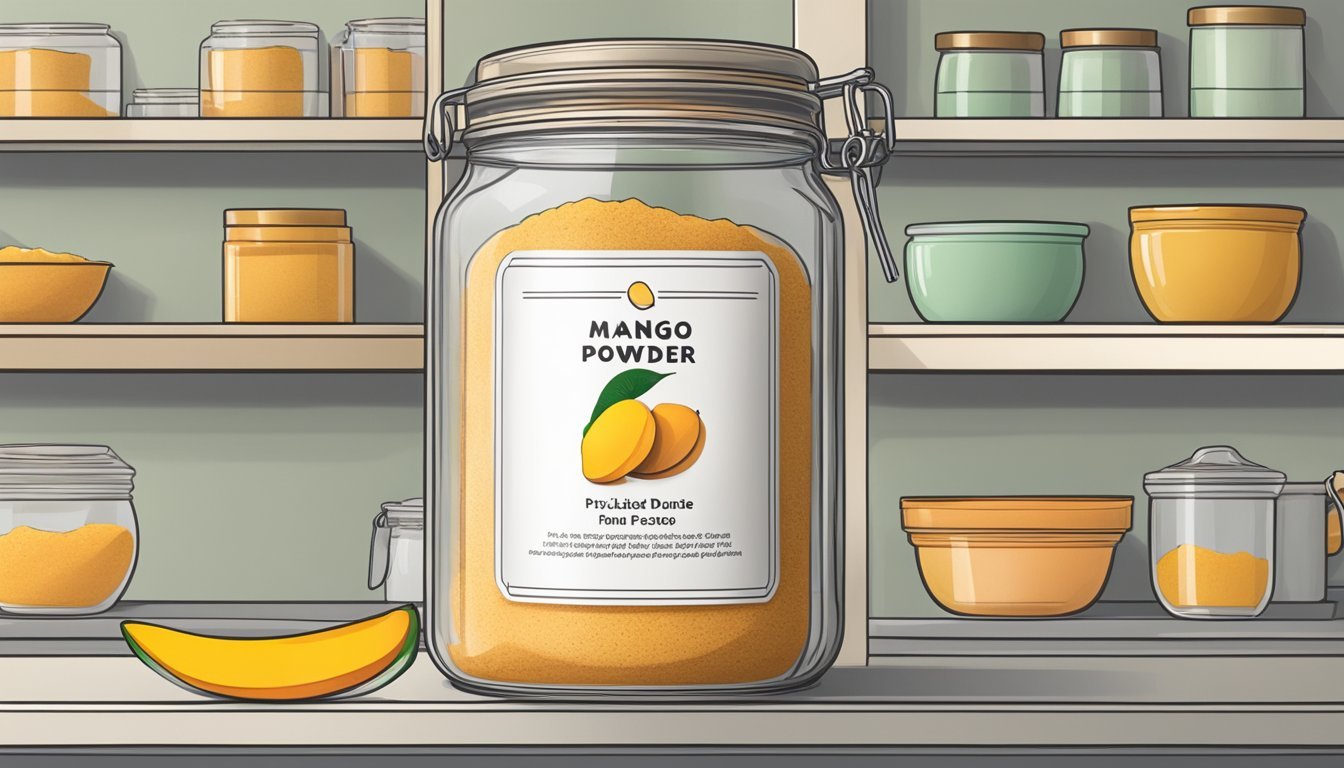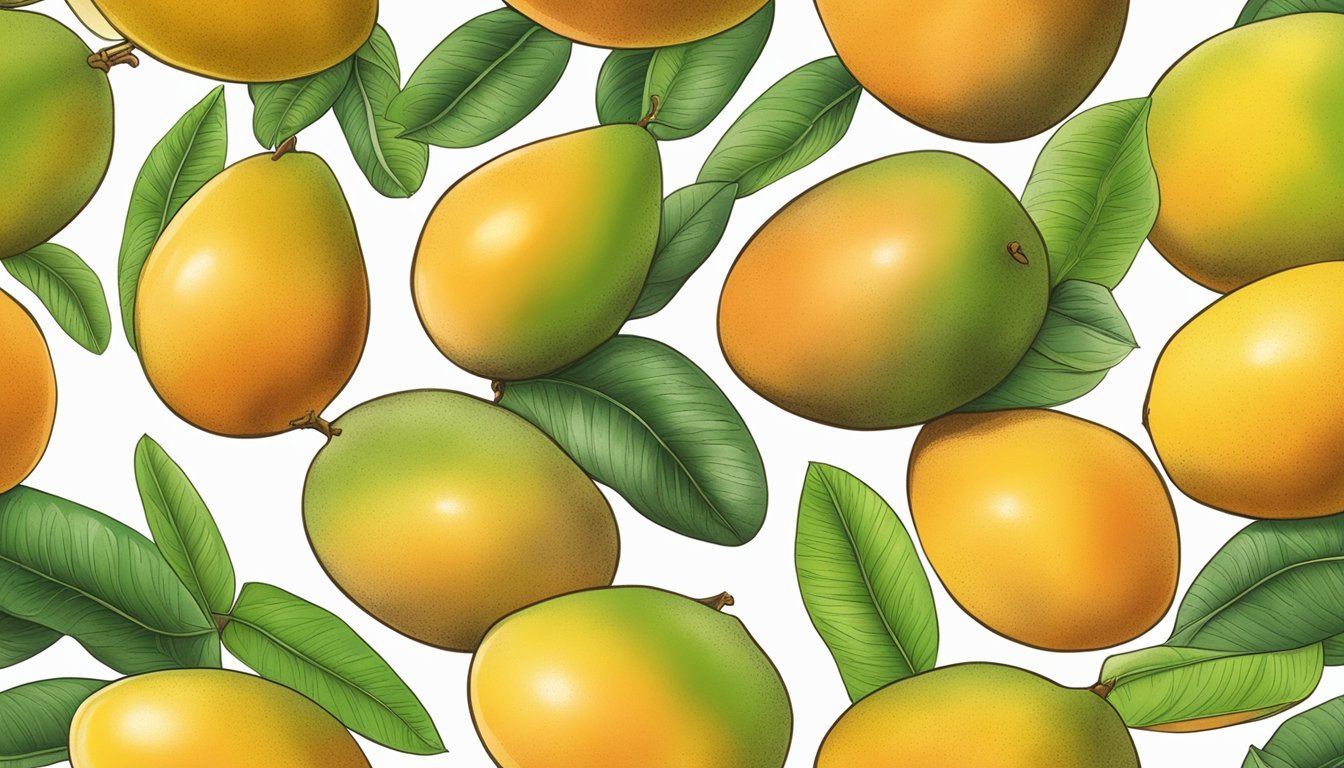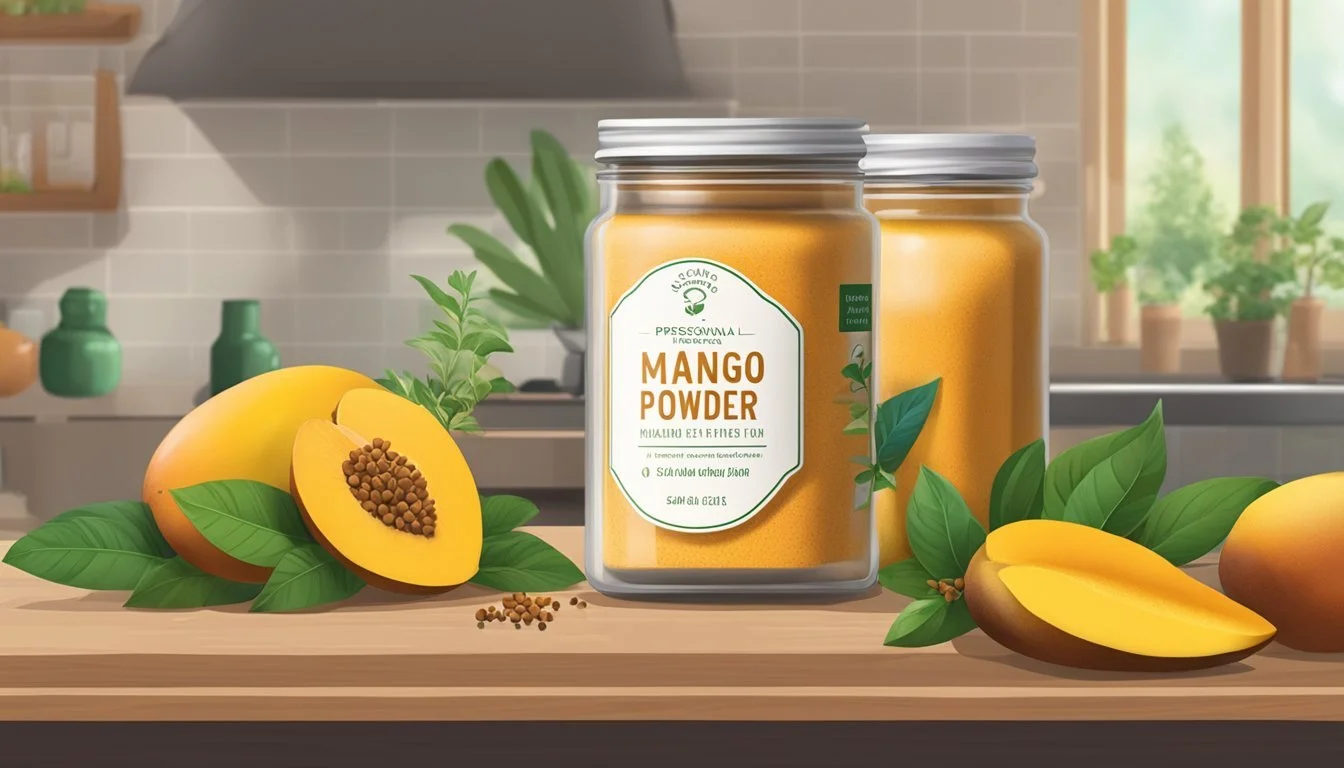How Long Does Mango Powder Last?
Shelf Life and Storage Tips
Mango powder (how long does mango powder last?), known as amchur or amchoor in South Asian cuisine, is made from dried unripe green mangoes that are ground into a fine powder. It is a staple ingredient in Indian cooking, widely cherished for the fruity tartness it brings to a variety of dishes. Its sourness is subtle yet distinctive, often used to enhance the flavors in curries, marinades, and chutneys. Amchur powder is not only valued for its flavor profile but also for its health benefits due to the presence of vitamins, antioxidants, and digestive properties inherent in the tropical fruit.
The shelf life of mango powder is an important consideration for both home cooks and professional chefs, as it directly affects the intensity of flavor the powder can impart to culinary preparations. Typically, when stored in a cool, dry place away from direct sunlight, mango powder retains its quality for about one to two years. It's essential to ensure that the container is airtight to prevent moisture from clumping the powder and to maintain its freshness for as long as possible.
Signs of spoilage in mango powder include a loss of its vibrant tangy scent, a change in color, or any signs of mold or unusual odor which indicate that the powder should no longer be used. To maximize shelf life, one should handle the spice with dry utensils and make certain that it is sealed properly after each use. With proper storage conditions, mango powder remains a reliable and flavorful addition to many recipes, preserving the essence of the tropical fruit long after its season has passed.
Understanding Mango Powder
Mango powder, commonly known as amchur, is a staple in Indian cuisine, renowned for its tart flavor and nutritional value.
The Basics of Mango Powder
Mango powder is made from green mangoes that are peeled, thinly sliced, and then sun-dried until they are brittle and crisp. The dried mango slices are then ground into a fine powder. This powder has a distinctive souring agent property due to its acidity, which imparts an acidic taste without adding moisture to dishes.
Culinary Uses in Indian Cuisine
In Indian cuisine, mango powder is used for its flavour; it adds a sour, tangy note to a variety of dishes. Common applications include:
Seasoning for curries, soups, and chutneys,
Marinades for meat and vegetables to impart tenderness and taste,
Sprinkled over snacks for an acidic kick.
Mango powder serves as a critical ingredient to balance flavour profiles, especially in lentil dishes and stews.
Health Benefits: Vitamins and Antioxidants
Mango powder not only enhances flavour but also offers health benefits. It is high in both vitamins and antioxidants. Predominantly, it contains:
Vitamin A, which supports eye health,
Vitamin C, which aids in immune function and skin health.
The antioxidants present in mango powder help in mitigating oxidative stress and in promoting overall wellbeing.
Shelf Life Determinants
The longevity of mango powder is influenced by various factors, predominantly storage conditions and the inherent difference in shelf life as compared to whole mangoes.
Storage Conditions Impact on Longevity
Storage temperature plays a crucial role in the shelf life of mango powder. For instance, a consistent temperature of about 38°C is ideal for stability. Elevated storage temperatures can accelerate the degradation process, reducing shelf life.
Moisture content is another critical determinant. Mango powder must be kept at a low moisture level to prevent spoilage and clumping, with the sticky-point moisture content being a threshold for stability.
Optimal storage for mango powder involves keeping it in an airtight container. This approach minimizes exposure to air, which contains moisture and other contaminants that can affect quality.
Mango Powder vs. Whole Mangoes Shelf Life
Mango powder generally has a longer shelf life than whole mangoes due to the removal of moisture during its production process. Dried mango, a comparable product, can last:
Pantry: 4-12 months
Refrigerator: 6-12 months
Freezer: 12-18 months
These durations can be considered a benchmark for mango powder as well, given that both products undergo a dehydration process. However, specifics such as the Guggenheim-Anderson-de Boer (GAB) model can predict a more precise shelf life for mango powder under ideal conditions, which might be around 114.68 days. The difference in longevity between mango powder and whole mangoes emphasizes the influence of reduced moisture content on shelf stability.
Optimal Storage Practices
Proper storage is key to maintaining the quality and extending the shelf life of mango powder. These techniques ensure that mango powder retains its flavor and stays safe for consumption.
Storing Mango Powder at Home
To store mango powder effectively at home, it is essential to keep it in a cool and dry environment. Ideally, one should place the powder in airtight containers to prevent moisture from seeping in, which could lead to clumping and possible spoilage. A pantry or a cabinet away from direct sunlight or heat sources is an optimal location. It's also advisable to use containers that are made of non-reactive materials such as glass or food-grade plastic.
Extending Shelf Life Through Proper Storage
In order to maximize the shelf life of mango powder, using dehydrators can help to remove moisture from fresh mangoes before grinding them into powder. The powder should be stored at a consistent temperature, and to prevent degradation, it is best kept in an environment with low humidity. Aluminum foil-laminated pouches can be beneficial for those who wish to further shield their mango powder from humidity and potential contaminants.
By following these storage guidelines, consumers can enjoy their mango powder over an extended period without compromising its freshness and quality.
Signs of Spoilage and Quality Loss
When it comes to mango powder, identifying signs of spoilage and understanding factors that lead to deterioration are essential for ensuring quality and safety.
Identifying Spoiled Mango Powder
Mango powder, made from dehydrated mangoes, is typically robust in shelf life. However, it can spoil. Spoilage is usually evident when the product displays a noticeable change in color, becoming darker than the original hue of bright yellow-orange. Additionally, the presence of mold is a clear indication that the mango powder has gone bad. Mold can appear as white, green, or black spots, which are readily visible against the powder's surface.
When assessing for quality loss, a change in aroma can be a significant sign. Fresh mango powder has a characteristic fruity scent, while spoiled powder may emit an off, sour odor. Furthermore, if the texture of the powder clumps together rather than maintaining its free-flowing granular consistency, this can signify moisture ingress, which could facilitate spoilage.
Factors Leading to Mango Powder Deterioration
Several factors contribute to the deterioration of mango powder. Moisture is a primary culprit, as it encourages mold growth and enzymatic activity, leading to spoilage. Storing mango powder in a dry, cool place in a well-sealed container can significantly reduce this risk.
Exposure to light and heat can also degrade the quality of mango powder, causing it to lose its vibrant color and potent flavor. Hence, it is advisable to store it away from direct sunlight and at a stable temperature to prolong its shelf life.
Other considerations include the age of the product and handling practices. As mango powder gets older, it naturally loses its potency and is more likely to encounter contaminants, especially if repeatedly opened or if transferred between containers improperly. Keeping the powder in its original packaging or an air-tight container, and using clean, dry utensils to handle it can minimize these risks.
Creative Usage Ideas
Mango powder, also known as amchur, is a staple in culinary traditions that imparts a tangy, sour taste to dishes. It offers a burst of flavor without adding moisture, making it an ideal ingredient in a variety of recipes.
Incorporating Mango Powder into Meals
In main courses, chefs often add mango powder to curries, stews, and soups to achieve a complex acidity that balances rich spices. One can simply sprinkle it during the cooking process or mix it into marinades before cooking to tenderize and infuse meats with its distinctive taste.
Curries: A teaspoon of mango powder can transform a curry.
Stews: Mix into the stew while it simmers for a tangy profile.
Soups: Add along with spices, catering to individual taste preferences.
Enhancing Flavors with Mango Powder
For a refreshing twist, mango powder is excellent in smoothies and drinks, especially when combined with sweet fruits to cut through their sweetness.
Smoothies: Blend with mango pulp, yogurt, and ice for a zesty tropical drink.
Yogurt: Stir into plain yogurt for a quick, flavorful snack.
Salads: Works well in fruit salads and in dressing for green salads to add a fruity zing.
Furthermore, mango powder can finish off chutneys with a zesty note or give an unexpected twist in oatmeal or breakfast cereals. It's versatile enough to enhance sweet and savory dishes alike, making it an invaluable component of a creative kitchen.
Cultural Significance
Mango powder, known as amchur in India, holds significant cultural relevance due to its extensive use in traditional Indian dishes and its incorporation into various ethnic cuisines around the world. As a staple in Indian grocery stores, amchur provides a distinctive tartness that is cherished in various recipes.
Mango Powder in Traditional Indian Dishes
In Indian cuisine, mango powder is not just a seasoning but a vital ingredient that can transform a dish's flavor profile. It is an essential component in chaat masala, a spice blend that is pivotal to creating the iconic flavors found in popular street foods and savory snacks across India. The tartness of amchur is integral in balancing the spicy and savory notes typical in Indian dishes, making it a cornerstone in the culinary heritage.
Mango Powder in Ethnic Cooking and Gastronomy
Mango powder transcends Indian cuisine, finding a place in the gastronomy of various ethnic cooking traditions. Its ability to impart a tangy flavor has made it a sought-after ingredient in fusion dishes, offering chefs a versatile tool to innovate while respecting cultural flavors. Amchur's fruity undertone and sour zest make it a unique seasoning that enriches the gastronomic experience beyond its Indian roots.







